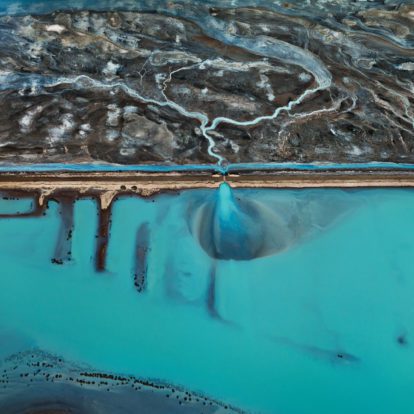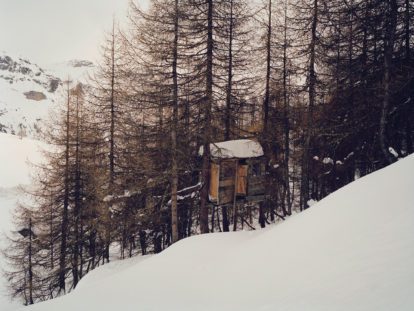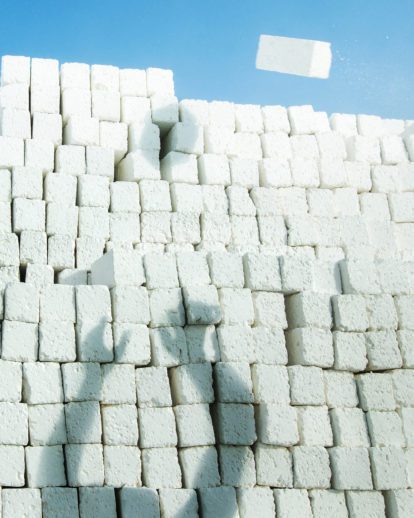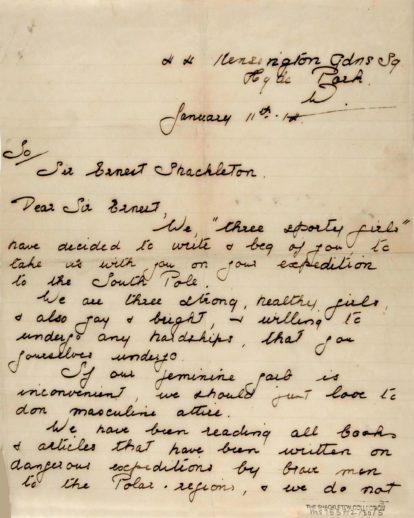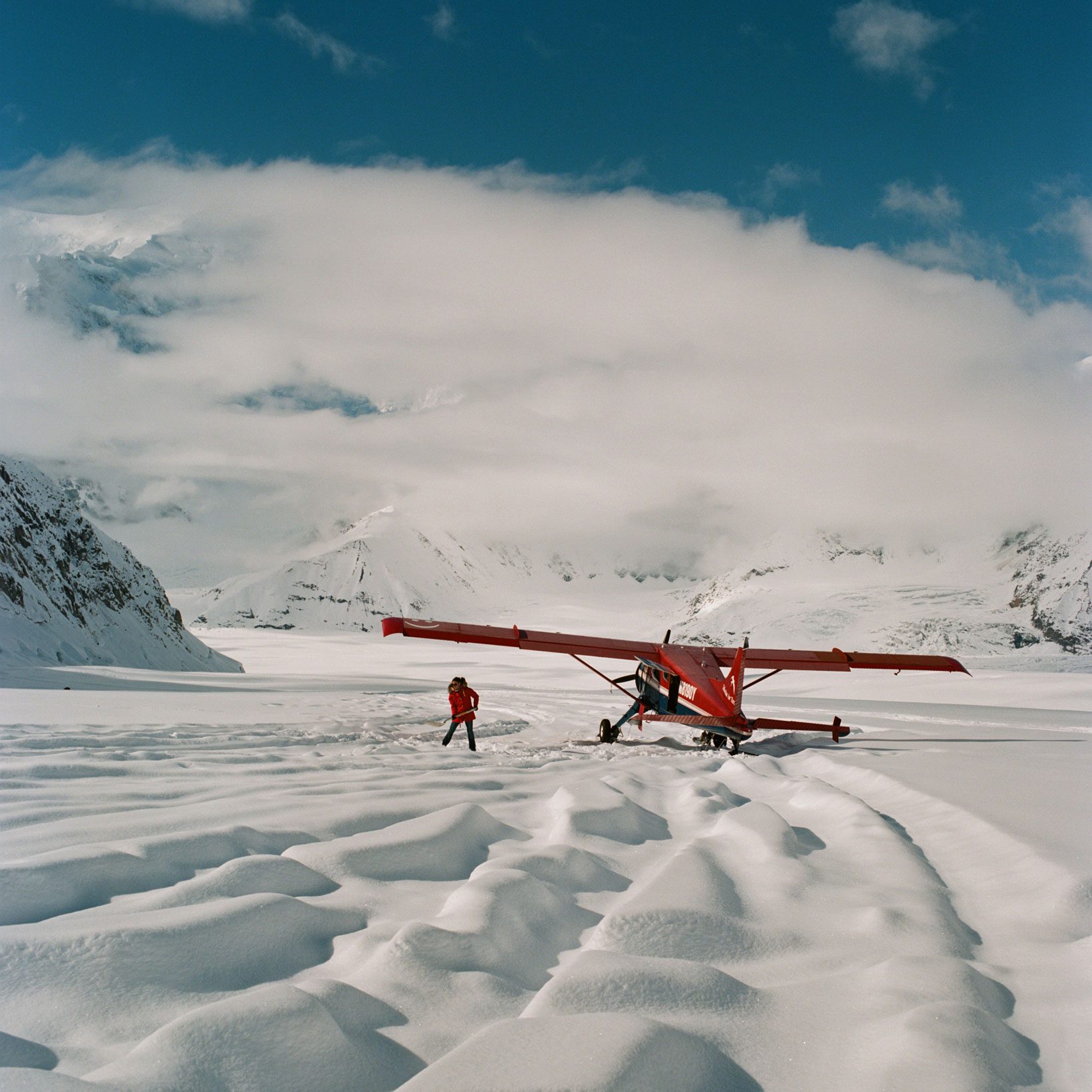Music is formed by its surroundings. The fierce urgency of grime echoes London’s claustrophobia at 140bpm, while the long strive for change in America’s southern states was channeled into the blues. For Terje Isungset, who came of age amidst the sprawling, harsh Norwegian wilderness, it’s about looking to what’s on his doorstep, building marimbas from splintered wood fragments and carving bellowing horns from ice blocks 100,000 years old. This, then, is ice music.
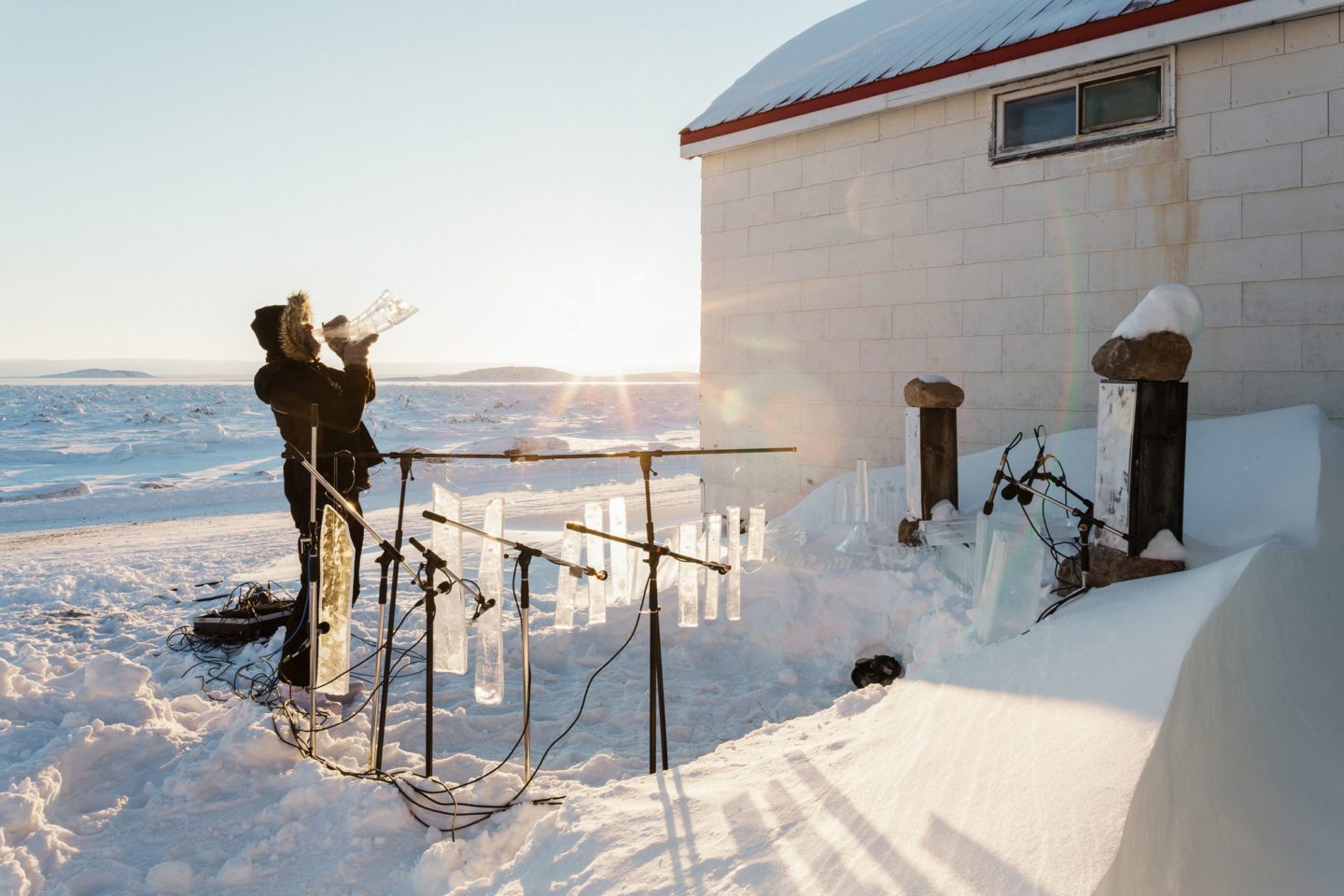
‘You cannot really trust the instruments because they change. The sound that plays is decided by nature.’ Photography: Emile Holba.
‘As a musician it’s important always to be moving and developing, always creating and discovering new things,’ he says of his creative process. A trained jazz musician from a young age Isungset first began rummaging through rubbish bins for musical materials at the age of six, turning discarded containers into percussive instruments. Until his mid-20s he used more conventional methods to make music, playing drums in Latin and free jazz bands. Then he had an epiphany – he sounded just like everybody else.
‘Each piece of ice affects my way of playing. a polluted frozen lake mostly produces dull, uninspiring sounds.’
Terje Isungset
‘The things I pick as instruments don’t have any value amongst most people,’ he says of his musical midlife crisis. ‘People don’t see the value in having ice, or snow. Some people see stones and wood as garbage, but I see them as gold.’
After almost two decades working with ice and organic sound Isungset has learned to treat these materials just like any other, albeit materials that melt in real time beneath the stifling stage lights. ‘You cannot really trust the instruments because they change,’ he explains. ‘The sound that plays is decided by nature, and this means it’s important to improvise.’ Isungset’s Ice Music Festival – which takes place in Geilo, Norway – is where his experimental instruments are showcased in their full symphonic glory. But to his trained ear, ice from each country has its own regional timbres. ‘Each piece of ice affects my way of thinking, feeling and playing,’ he reflects. Highly pressurised ice found within glaciers or the untouched plains of Greenland are a goldmine, and in Russia, a polluted frozen lake mostly produces dull, uninspiring sounds.
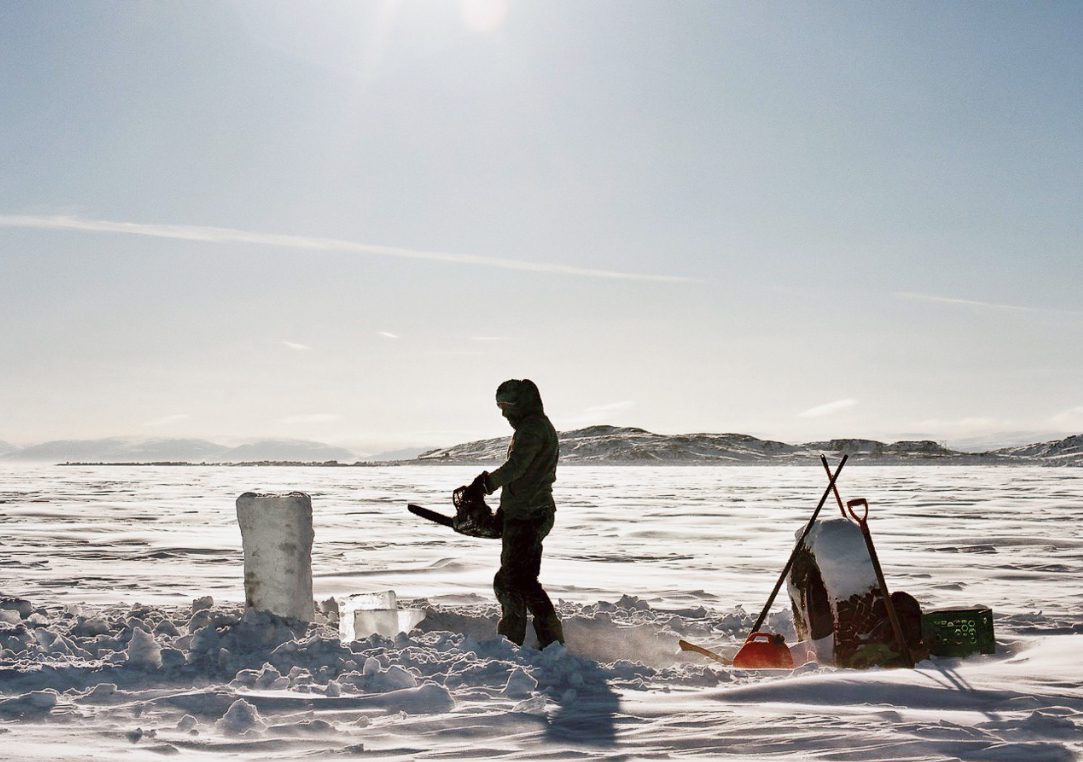
Photography: Emile Holba.
Artificial ice is ordinarily the equivalent of playing Steve Reich through laptop speakers, but in Japan, hot springs make finding natural ice problematic. Instead, when Isungset was recently named artist in residence by Arts Council Tokyo, he used a freshwater supply found just beyond Tokyo usually reserved for one of the capital’s purest Sakes. ‘Ice is an instrument that changes over time,’ he declares. He pauses briefly. ‘It can create things I never expected. It’s art by accident.’
To hear more visit www.terjeisungset.no
